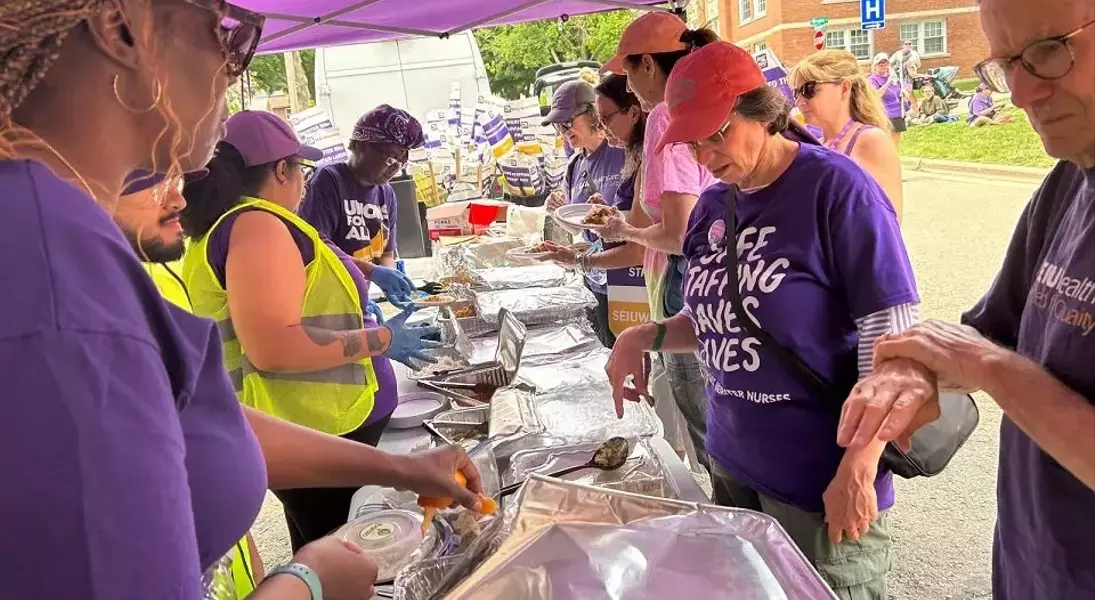
In a heartfelt demonstration of solidarity, the city of Madison came together to support healthcare workers during a five-day labor strike in May. Nurses from UnityPoint Health-Meriter took to the picket lines, seeking better contract terms. As the strike unfolded, local restaurants and food organizations stepped up to provide nourishment and encouragement. The grassroots group Dane County Food Collective played a pivotal role in mobilizing resources, connecting donors with those in need. While the union offered basic sustenance like snacks and drinks, community contributions went beyond expectations—delivering full meals that boosted morale. From donated sandwiches to fresh produce and prepared dishes, the effort showcased the power of collective action. Even after the strike concluded with a new agreement in place, the ripple effects of this movement continued, highlighting the importance of mutual aid and community networks in times of need.
Grassroots Effort Feeds Frontline Workers Amid Labor Strike
In the spring of 2024, during a planned five-day labor strike by nurses at UnityPoint Health-Meriter, the streets of Madison transformed into a hub of solidarity and sustenance. Organized by SEIU Wisconsin, logistical efforts ensured that striking workers had access to essential supplies through a daily food pantry stocked entirely by donations. Volunteers, many of them retired union members, managed the distribution, ensuring that no one went without. While the union provided water, coffee, and light snacks, it was the broader community that elevated the effort—offering full meals that exceeded basic expectations. Brendan Schwaab, a nurse on the front lines, recognized the opportunity for greater support and reached out to Efrat Koppel of the Dane County Food Collective. This coalition, formed in 2022 to address food insecurity and advocate for industry resilience, quickly activated its network. Restaurants such as Pasture and Plenty and Banzo responded with hundreds of servings, while State Representative Francesca Hong lent both organizational and hands-on support. Though some donations arrived after the immediate need had passed, the overwhelming generosity underscored a city united behind its healthcare workers. Additional contributions came from Bloom Bake Shop, Raising Cane’s, and various pizzerias, reinforcing the widespread backing for the cause.
As a journalist observing this grassroots mobilization, one cannot help but be moved by how deeply intertwined food and activism have become in modern protest culture. In an era where public demonstrations often rely on visibility and vocal messaging, the act of feeding one another quietly yet powerfully reinforces communal bonds. What began as a labor negotiation evolved into a testament of civic compassion—showcasing how local networks can shift from crisis response to proactive support. The Dane County Food Collective, though still relatively unknown to many, proved its potential as a vital resource. Their involvement illuminated not only the immediate needs of striking workers but also the long-term necessity of building resilient food systems rooted in solidarity. In a world where activism takes many forms, sometimes the most impactful gesture is simply making sure someone has something warm to eat.
